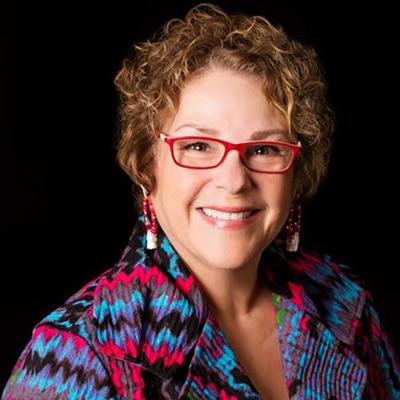Working with sexually abused children and their families utilizing play and other expressive therapies. .
Program Goals
Tramadol Mastercard Overnight Over the years, we have learned more and more about how to be of assistance to families facing the complex issue of child sexual abuse. This workshop will present an integrated model of responding that includes play therapy for assessment and treatment of traumatized children, as well as the entire family. Using a systemic format that includes individual, dyadic and family play therapy sessions, the critical use of nonverbal therapies will be highlighted alongside the import of cognitive-behavioral strategies. The presenter is uniquely prepared to discuss an integrative model based on her experience running several child sexual abuse programs, and implementing an array of expressive arts to promote family health. Dr. Gil will present state-of-the art information on the impact of child sexual abuse on children’s development, and discuss a variety of ways that play therapists and other clinicians can advocate for improved family dynamics that serve to support and guide the traumatized child. Participants will learn about assessment domains that can be viewed through the lens of play therapy, and will leave with several assessment and treatment tools that promote individual and family therapy goals. Special attention will be paid to two relevant issues: children who develop sexual acting-out behaviors and children who utilize post-traumatic play to process their traumatic experiences. This promises to be a comprehensive two-day training that will promote skill-building and confidence in new and seasoned play therapists.
Program Schedule
https://splendormedicinaregenerativa.com/ykbmvx4gk7 This 5-1/2-hour workshop will include didactic presentations, group discussions of clinical play therapy material, and some experiential work.
This course is presented in three hours.
https://autismwish.org/y4k6v3ywh7 Day 1
| 10:00- 12:30 | The impact of sexual abuse on children’s development: A deeper look at how children show that they are in distress |
| 12:30 -01:30 | Lunch Break |
| 01:30 -04:15 | Consensus of impact areas and treatment target areas Assessment strategies using play therapy and expressive arts Treatment goals and formats: Making decisions about how to Best promote goals and which play therapy approaches to use |
| 04:15 -04:30 | Break, summary and Questions and Answers |
Course Objectives
By the end of the course participants will be able to:
- List two ways that child sexual abuse impacts children’s development
- Give two examples of assessment activities with sexually abused children that include play therapy
- List two therapeutic factors of play that are utilized when treatment planning for traumatized children
- Identify two ways that therapists can design play and other expressive therapy ideas to work with specific client issues
- List three consensus areas that are helpful for play therapists to consider when assessing the impact of childhood trauma
- Define therapeutic metaphor and state two ways to listen for, or elicit family metaphors
- Name two experiential exercises that play therapists can use to self-inform about the family and to provide self-care
- List two reasons to use novelty in family play therapy
References:
Chirico, I., Andrei, F., Salvatori, P., Malaguti, I., & Trombini, E. (2019). The Focal Play
Therapy: A Clinical Approach to Promote Child Health and Family Well-being. J. of Frontiers of Public Health, April https://doi.org/10.3389/fpubh.2019.00077
Daley, L. P., Miller, R. B., Bean, A. & Oka, M. (2018). Family system play therapy: An Integrative Approach. The American J of Family Therapy, 46:5, 421-436.
Froeschle Hicks, J., Lenard, N., & Brendle, J. (2016). Using Filial Therapy with Deployed Families, International J. of Play Therapy, 15:4, 210-216
Instructor
Eliana Gil, Ph.D. is Founder and Partner of Gil Institute for Trauma Recovery and Education and Senior Consultant of Starbright Training Institute.
Phone: 202-257-2783.
Email: elianagil@me.com
website: www.gilinstitute.com and www.starbrighttraininginstitute.com
enter General Course Information
This virtual training will facilitate experiential work, group discussion, and processing of counter-transference material. Participants will have ample opportunity to discuss their specific needs and clinical questions. Participant feedback will be sought out throughout the two- day program.
Clinical case discussions will adhere to HIPPA regulations regarding client confidentiality.
Target audience is Mental Health Professionals: Registered Play Therapists, Social Workers, Psychologists, Licensed Professional Counselors and Licensed marriage and Family Therapists.
The program is Intermediate Level and assumes participants have a working knowledge of family systems theory as well as foundational theories about expressive therapies in general and specifically play, sand, and art therapy.
This event is sponsored by Starbright Training Institute. Starbright Training Institute is approved by the Association for Play Therapy to offer continuing education specific to play therapy (APT Provider No. 96-029).
Myriam Goldin, LCSW; RPT-S, is Director of Starbright Training Institute.
Phone: Tramadol 50Mg To Buy 703-679-7054.
Email: starbright.inst@outlook.com
Web Page: starbrighttraininginstitute.com
https://etbscreenwriting.com/se61pthu02 Grievance Policy
Commonwealth Educational Seminars (CES) seeks to ensure equitable treatment of every person and to make every attempt to resolve grievances in a fair manner. Please submit a written grievance to: Myriam Goldin, LCSW; RPT-S, Director of Starbright Training Institute. Phone: 703-980-2886. Email: starbright.inst@outlook.com Web Page: starbrighttraininginstitute.com
Grievances would receive, to the best of our ability, corrective action in order to prevent further problems.
https://gsaudemarketing.com.br/t0ykkzb3 Accommodations for the Differently Abled
Starbright Training Institute’s training facilities are handicap accessible. Individuals needing special accommodations please contact the Director of Starbright Training Institute. See contact information above.
https://www.adroitprojectconsultants.com/2024/07/25/crurp7tnr9 Due to COVID-19 health concerns, this one-time online event has been approved by APT for (5 ½ hrs) CONTACT CE Hours.
click There is no known commercial support nor conflict of interest for this program.
